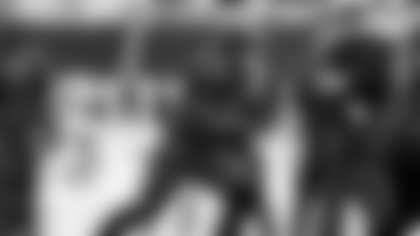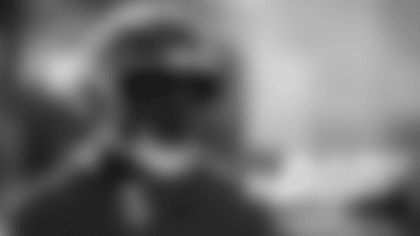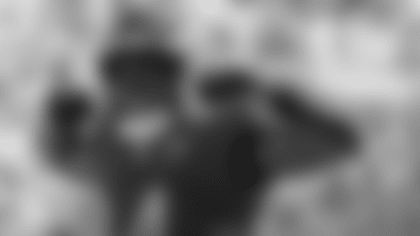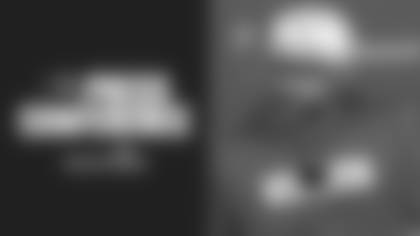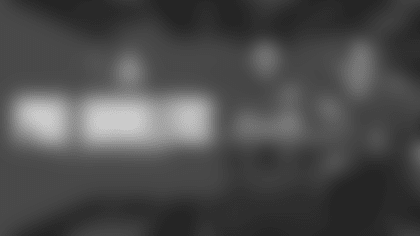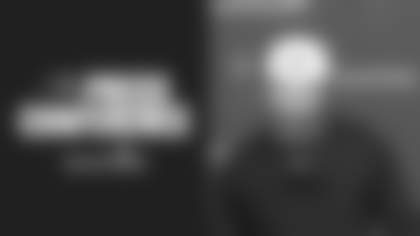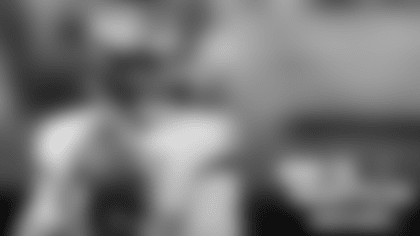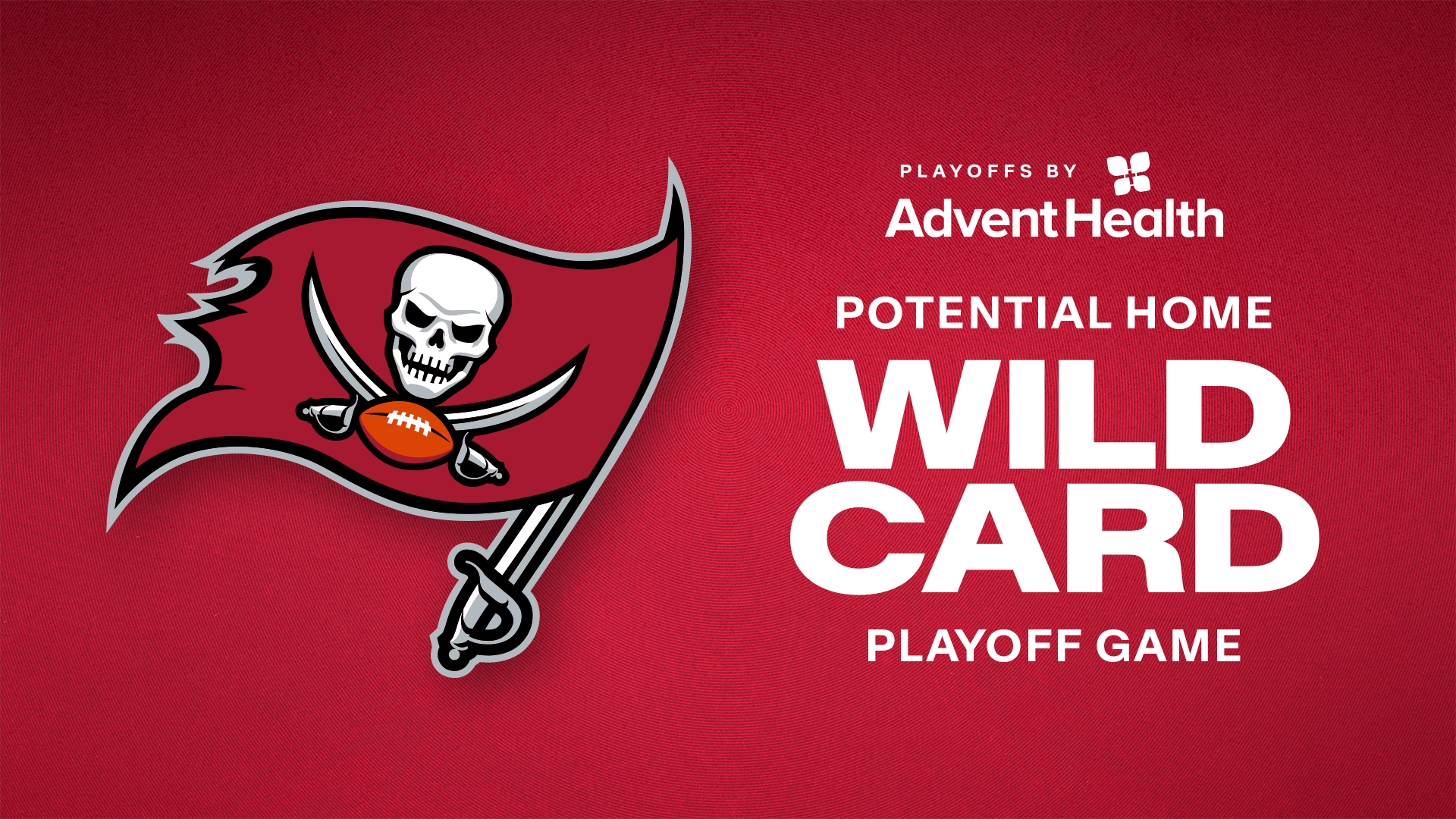Here are a few things for which the Answer Man is thankful this Thanksgiving:
I'm thankful for the Answerlings, though that thought comes into my head pretty much every day.
I'm thankful for flea-flickers. I wish teams would use them a little bit more, but I'll take what I can get. It's just an instant adrenaline rush when you see the back stop and pitch the ball back to the quarterback. The next few seconds are sure to be exciting.
I'm thankful that I've seen the whole NFL career of Derrick Brooks (so far), so that I'll have good mental images of what I'm going to be reading off a plaque in Canton.
I'm thankful for Michael Clayton. What a rookie, huh? As strange as it is to say about a player who has all of 10 NFL games under his belt, you just can't imagine this guy not having an outstanding career, can you? And he's a Buc!
I'm thankful for Grandma Answer's Thanksgiving noodles. Not exactly the traditional Thanksgiving fare, but pure, made from scratch and delicious.
I'm thankful for the NFL rulebook. Regular readers are going to find that hard to believe, given my incessant complaining about that densely-packed compendium of knowledge, but I'd be in a world of hurt without it. Plus, I found out what a ‘fair catch kick’ is, and so did many of you.
I'm thankful for that one in every 10 kickoff return that doesn't draw a penalty flag. (Oooh, that really wasn't in the spirit of Thanksgiving, was it? Sorry.)
Speaking of which, I'm thankful that I know, having seen the Red Sox win the World Series, that there is no curse keeping the Bucs from returning a kickoff for a touchdown. It's going to happen soon.
I'm thankful that readers of my column are sending in questions even as they enjoy their Thanksgiving. Thanks for thinking about me. (Okay, there was only one the last time I checked and it was a really easy one, for which I'm also thankful. Douglas of Tampa, Florida asks: Who was the coach prior to Dungy? Doug, that would be Sam Wyche, from 1992-95.)
I'm also thankful that my editors don't make me answer every single question that comes in, because some of them aren't too kind or particularly imaginative. Like this one, which came in one day before Thanksgiving. Charlie of Brevard, Florida asks: Why does Tampa Bay suck? What, Charlie, the bay itself? I don't know...low tide? I guess my only response is, lay off the lead paint.
I'm thankful for tailgating.
I'm thankful for Ronde Barber's interception in Philly. I know that was two years ago, but I don't think I'll ever forget how I felt when he picked that pass off in the NFC Championship Game. Is it wrong to give a little thanks for that play each year? I don't think so.
I'm thankful for Joe Jurevicius's first-down signal, and that Joe felt good enough to dance a little jig in the end zone last weekend.
I'm thankful for Simeon Rice's burst off the line, Brian Griese's play-action fake, Mike Alstott's second effort and Coach Gruden's scowl.
And I'm thankful for flag football. It's livened up many of my Saturday mornings and taken a few years of my knees. It is also, I suspect, the impetus of many of the questions I receive. In fact, the first one I'm going to tackle today specifically arose at the key point in a friendly game of weekend football.
So let's get to those questions. And Happy Thanksgiving, from the Answer Family to yours.
**
Mike D. of Toronto, Canada asks:
**Answer guru, I need your help!
We all know that the ball has to cross the plane to be a TD (99% of the time?). However, what if a receiver caught a ball at the 1 yard line, then ran 2 feet in the end zone - ball in the right hand - and the ball never actually broke the plane... Is that still a td?!? I need to know, cause our Saturday "pick up" game was decided on this....Thx Answer dude!**
Actually, between the time that e-mail came through and the time I sat down to write this column, Mike sent in a more detailed explanation. Safe to say, this is weighing heavily on one dude's mind!
Here's the scenario:
**Answer Man, I need your help on this one! Mostly to save dignity...We all know the cardinal TD rule that says the ball must cross the plain in order to put 6 on the board. Is this the case 100% of the time?
Scenario - I have been playing "pick up" football every Saturday for the last 5 years. This week I caught a pass inches from the end zone, then carefully stepped (inbounds) around the last pylon marking the end zone. The ball may not have crossed the plain even though my feet clearly did. Is that still a TD, or does the ball also have to the break the plain?
I took a lot of heat from the guys saying that the ball never crossed. I argued that when a player catches a pass on the sidelines, keeping his feet in, it doesn't matter where the ball is actually caught.
Who's right?**
Answer Man: Well, Mike, I've got two answers for you. You're not going to like one of them, and you'll probably feel pretty non-committal about the other one.
First, the cop-out answer: I can't really tell you who is right in the above scenario because I don't know your league's rules. As you obviously know, flag football rules differ from those in the NFL. For instance, it's usually seven-on-seven or four-on-four, and you can often pass the ball forward multiple times behind the line of scrimmage. Also, there's that whole tackling thing.
This is the honest truth: I've played in separate leagues that defined the rule in question differently. In one, the rule was that the ball had to cross the plane. In the other, the ballcarrier simply had to get in. So I guess I would say, check the league rules.
On the other hand, you did say that this is a 'pick-up game.' It might not be a league and it might not even be flag football. (If that's the case, you probably read the last three paragraphs while yelling at your screen that I missed your point.)
So let's assume that's the case and you're generally using NFL rules to handle any disputes during your pick-up game. If so, well, those who wanted to take your points off the board were right. Sorry.
The NFL has a surprisingly succinct way of defining a touchdown, short enough that we'll reprint it here in its entirety:
A touchdown is the situation in which any part of the ball, legally in possession of a player inbounds, is on, above or behind the opponent's goal line (plane), provided it is not a touchback.
My first thought: 'Situation?' That really gets you fired up to cheer for a football game, doesn't it? "Hey, Bob, did you see that awesome situation just now where our team got the ball above the goal line? That situation kicked butt!"
My first relevant thought: The ball is obviously the key. There are some tricky situations around the pylon, but it all boils down to the ball nosing across the line. The one in your possession, apparently, did not. No touchdown.
Your comparison to a catch on the sideline is actually not a contradiction. The receiver can make a legal catch by getting his feet inbounds while the ball has already crossed the sideline, but the spot where the ball is marked still depends on where the ball is when it's caught. You follow me? You're not gaining any additional yardage by making a catch like that on the sideline.
After all, you can do the same thing in the end zone. In fact, if you were to make such a catch with your feet tickling the pylon, that would be a touchdown, as the pylon is part of the plane of the goal line, as long as the ball had also already reached the pylon.
That's the key. As soon as you kick the pylon, not only has your foot crossed the goal line, but you have also gone out of bounds (see below for a good example of this). If you're tumbling across the line and the ball is at least even with your foot as you hit the pylon, even if it's over an out-of-bounds area, that's a touchdown. If you do so with the ball still behind the line, then it will be spotted where it was when your foot hit the pylon.
I should say that, in looking for backup to what I've written above, I stumbled across a lot of difference of opinion on the whole idea of the plane of the goal line extending beyond the sidelines. Unfortunately, I don't think this affects your situation. You clearly said you stepped over the pylon before the ball reached the goal line, and that's an easy call for any official.
Sorry, Mike. I appreciate that you are the one out of the game to take the initiative in seeking out an answer, but I can't side with you. Next time, dive over the line.
(As for hitting the pylon meaning you've both gone into the end zone and gone out of bounds, I refer you to the Bucs' 25-0 win at Baltimore in 2002. On the first play of the third quarter, RB Jamal Lewis fumbled and the ball bounced back towards the Ravens' end zone as several players tried unsuccessfully to recover it. Eventually, safety John Lynch jumped on the ball near the goal line and it squirted out of his hands and hit the pylon. Though the Bucs recovered in the end zone, it was a safety, not a touchdown. As soon as the ball hit the pylon, it was both in the end zone and out of bounds.)
**
Richard Schilling of Breinigsville, Pennsylvania:
Man of many answers, I must ask a bit more of your attention. Help me understand the seemingly arbitrary list of calls that cannot be challenged. I understand that penalties and forceouts cannot be reviewed because they are judgment calls. But why can a coach not challenge the recovery of a fumble or onside kick? The officials accept that whoever emerges from the pile with the ball recovered, but cannot review video that obviously shows another player had it. How is it decided that a particular type of call is above question?
Answer Man: And you're the man of many questions, Richard. This may be your second or third contribution to the column, but I knew this question was bound to come up after the ending to that Minnesota-Green Bay game two weeks ago.
I assume that's what prompted you to write me again, right? For those who missed it, here's the scenario: The Packers and Vikings were tied, 31-31, in the fourth quarter at Lambeau Field when Robert Ferguson took a kickoff with 1:20 to play and returned it almost to midfield. Ferguson fumbled at the end of the run, however, and a giant scrum of Minnesota and Green Bay players descended upon the ball. Replays seemed to show Minnesota's Derek Ross getting the ball first, but Green Bay's Ben Steele had it when the pile was cleared and the Packers maintained possession. They kicked the game-winning field goal a few plays later.
Richard seems to share the Vikings' frustration. If a player is down when he has possession of the ball and he is touched, then why isn't a play dead as soon as one man on the ground clearly gains possession of a fumble and is then touched?
Actually, I would say that is how the officials call it when they can clearly see that happen. I've seen referees make immediate possession calls after a fumble, long before a pile is cleared. Unfortunately, it seems like most of the time the first person to recover the ball is unclear and officials have to dig into the pile.
That's when Rich – can I call you Rich? Our words have spent a lot of time together on the screen – thinks replay should be used, if possible. And the Answer Man doesn't disagree.
The question from Rich, though, is how it was decided which plays were reviewable and which were not. I think I do have an answer for that, at least a partial one.
When the system was revived in 1999 (there was an initial run of replay from 1986-91 which eventually fell out of favor because the man upstairs had too much power to slow down the game), the league's Competition Committee strived to accomplish one thing above all others: Get the 'pivotal' plays right. Thus, whether a ball crosses the goal line or whether a receiver gets both feet inbounds in the end zone are reviewable plays.
The Competition Committee was loathe to slow the game down, however, so a lot of time was spent in defining what could be reviewed. Things that are considered pure judgment calls, as Richard points out, were excluded. After all, can you really tell, even in replay, if a defender's shove is what caused a receiver to go out of bounds before getting his feet down?
Here's a helpful quote from NFL Director of Officiating Mike Pereira from a story on NFL.com that was reprinted several years ago on Buccaneers.com:
"We tried to stay to facts," said Pereira. "The facts are boundary lines, the facts are the goal line where you have some really non-judgmental calls to make. If we put in pass interference for example, that is such a difficult judgment call, somebody's going to challenge that and the referee's opinion is going to be different than the side judge's opinion so you're going to have a hard time getting a consensus."
So, on the overall topic, I would simply say that the league chose its reviewable plays in a manner intended to get the outcome of the game right without slowing it down too much. On the idea of whether fumble recoveries should be added to the list of reviewable plays...well, maybe the Competition Committee will consider it over the next offseason. Some rules are tweaked every year. Just keep in mind that officials go into the booth needing irrefutable evidence to overturn a call; perhaps that's hard to come by when 15 huge players are jumping on top of one little football.
**
Tony Cacace of New Castle, Delaware asks:
**I have a question regarding a play that involved former Buc, Mark Jones. Mark Jones plays for the Giants now, and he had a penalty called on him during a loss to the Bears. When fielding a punt, Jones was waving his hands slightly higher than if he was signaling for an incomplete pass. It looked like he was either trying to tell his teammates to get away from the ball, or he may have just been trying to trick the opponents into thinking he called a fair catch. After catching the ball, Jones runs for what would have been a nice gain. But the refs called a penalty because he ran the ball after calling a fair catch.
Now my question is, what is the official rule on what defines a fair catch? Was what Jones did really illegal, or did the refs make a bad call? Thanks!**
Answer Man: Tony, like Richard above, is a previous contributor. I want to assure the readers that there is no favoritism in choosing questions, just topics that are interesting and that I feel qualified to answer.
I didn't see the play in question, but I did check out the play-by-play, and it's important to clarify the penalty that was called. Here's how it is worded in the official gamebook:
4-B.Maynard punts 29 yards to NYG 16, Center-65-P.Mannelly, fair catch by 89-M.Jones. PENALTY on NYG-89-M.Jones, Invalid Fair Catch Signal, 5 yards, enforced at NYG 16. Penalty negates a 16 yard punt return.
In other words, Jones wasn't penalized for calling for a fair catch and then running. He was penalized for not doing a good enough job of calling for that fair catch, though his subsequent return may indicate he didn't believe he was trying to do so.
It doesn't really matter what Jones intended, though. If the officials feel as if a returner's arms have gone above his helmet and also feel as if the signal wasn't clear enough, they will flag him for an invalid signal. For instance, simply raising one arm directly over your head isn't good enough; you specifically have to wave your arm from side-to-side.
That's rule 10-1-1. Had Jones been penalized for 'undue advance' of a legal fair catch, he would have officially been flagged for delay of game.
You can, of course, wave your teammates away from the ball, as one would normally do with the arms at about chest level. And you can shield your eyes by bringing your hand to your helmet, as long as it doesn't go above the helmet. I didn't see the play, but apparently the officials did not feel he was doing either of these things.
By the way, if you call for a fair catch and then muff it, you can recover the loose ball and legally return it. Not that you asked, but hey.
**
Kyle Russell of Nashville, Tennessee asks:
**Hello, Answer Man! It's me again! I have another question for you. Ok, here goes...
Let's say a Super Bowl went into overtime, are the rules the same, where there's an extra 15-minute quarter, or is it just an unlimited time-limit, sudden-death matchup? I was just thinking about this the other day and nobody else knows but you, so...can you help me out with this question?**
Answer Man: Kyle, would you be offended if I said I didn't remember your last question? Hope not.
Anyway, this is another question where the reader has given me too much credit. I suspect there are quite a few people besides me who knows the answer to this one.
Basically, the overtime rules in the Super Bowl, or any NFL playoff game, are the same as in the regular season with the exception that you keep playing extra periods until the game is decided. Obviously, a tie gets you nowhere in the playoffs.
So a Super Bowl that went into overtime would go into a 15-minute, sudden-death quarter just like usual. If either team scores before the 15 minutes are over, regardless of whether the other team ever got the ball or not, the game would be over. If not, then the two teams would play a sixth quarter, and a seventh if necessary, and so on.
An important clarification: The teams do not reset, flip a coin again and kickoff at the end of each overtime period. That's a critical distinction, because it affects how a team would treat its offensive plays as time wound down at the end of the first overtime period. Basically, teams now play it as if it was just the change between the first and second quarters.
This has not happened in a Super Bowl, but it has happened in the NFL playoffs. Quite recently, in fact. Last year in the NFC Divisional Round, the Carolina Panthers took a 23-12 lead in the fourth quarter in St. Louis only to see the Rams storm back to tie the game in regulation. Both teams' kickers missed a field goal try in the first overtime period, but QB Jake Delhomme hit WR Steve Smith on a 69-yard scoring pass 10 seconds into the second overtime and that was that.
It also has happened in an NFL Championship Game before the Super Bowl. In fact, the 1958 Baltimore Colts-New York Giants title game is still known as 'The Greatest Game Ever Played.' Colts fullback Alan Ameche scored on a one-yard dive on the second drive of overtime to give Baltimore a 23-17 victory.
**
And now a few words from the corrections and repetitions department...
Jordan Keller of Salt Lake City, Utah asks:
How could you forget the resident special teams ace, Jeff Gooch, in your list of Bucs who have returned after stints on other teams? He may have played in Detroit for the last two years, but he started his career as a Buc back in '96 and even started the '98 season for us at strongside backer. GOOOOOCH!!!
Answer Man: So true, Jordan. If I can just make one little point, however, I specifically said in my answer to that question that there were a number of other two-stint Buccaneers, and that I wasn't trying to provide a comprehensive list. My examples included Steve DeBerg, Mark Royals, George Yarno and Dave Moore.
Still, Jeff Gooch is admittedly an excellent example, and I missed it. Jordan has his bio right, too; Gooch first joined the Bucs as an undrafted free agent in 1996 and was an immediate hit on special teams. He continued to excel in that role through the 2001 season and also spent some time as the starter at strongside linebacker, as Jordan points out. In 2002, Gooch signed with Detroit, for whom he spent two years as perhaps Detroit's best special teams player. He returned to the Bucs this year and is already a favorite of Head Coach Jon Gruden. Gooch is capable of filling in at any of the three linebacker spots and remains an outstanding kick-coverage man.
Plus, he's a heck of a nice guy and he's got that great chant from the crowd. "They're not saying boo, they're saying GOOOOOOOOOOOCH!!!!!"
**
Jay of Staten Island, New York asks:
With the trades that got the Bucs draft picks, how many picks do they have as it now stands?
Answer Man: Covered that a few weeks ago, Jay, but as usual, this is a good chance to alert readers to my archive page.
The short answer from Volume 12: A total of 11 picks, including extra selections in the third, fifth and sixth rounds.
**
Confidential to Cheryl in Ohio:
It was my pleasure to pass your note along to Matt, and no trouble whatsoever. He was quite obviously moved and I gave him the contact information we discussed. Hopefully you've spoken and helped each other through a tough time. Please take care.
And that's it for the Answer Man on this holiday weekend. Fewer questions this week, but very long answers, and the tryptophan from the turkey is starting to kick in. Adam, Eric and Lisa, I promise that next week I'll get to your questions about juggling running backs, kickoff recoveries and 50-yard-line marriages.








